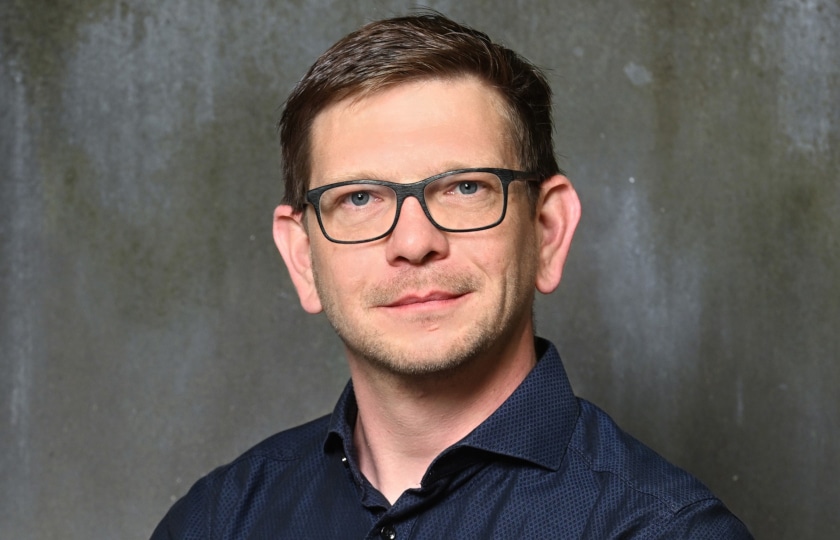The annual international representative survey conducted by the Reuters Institute in Oxford examines news usage and reveals general trends and national characteristics of developments. The Leibniz Institute for Media Research is conducting the German part of the study.
In addition to traditional media, the current media landscape is characterized by many stationary and mobile devices that enable access to news information at any time and any place via the Internet. The content and forms of offerings available as a result are just as diverse as their providers. Since 2012, the Oxford-based Reuters Institute for the Study of Journalism has been investigating the impact of these developments on the population’s information-oriented use of media as part of the Reuters Institute Digital News Survey. The focus lies on the following questions: How important are individual devices, providers and forms of news? How do people search for and find news? And how is the willingness to pay for news on the Internet developing?
Current Findings
The international and the German report 2024 were published on 17 June 2024.
- Reuters Institute Digital News Report 2024 – Ergebnisse für Deutschland [Findings for Germany] (Working Paper of the HBI, No. 72; pdf)
- Reuters Institute Digital News Report 2023 (Report for all countries in English)
- Press Release “News Fatigue in Germany on the Rise” of 14 June 2023
The 2023 study was conducted simultaneously in the following countries under the coordination of the Oxford (UK) based Reuters Institute for the Study of Journalism: Argentina, Australia, Austria, Belgium, Brazil, Bulgaria, Canada, Chile1, Colombia, Croatia, Czech Republic, Denmark, Finland, France, Germany, Greece, Hong Kong, Hungary, India, Indonesia, Ireland, Italy, Japan, Kenya, Malaysia, Mexico Netherlands, Nigeria, Norway, Peru, Philippines, Poland, Portugal, Romania, Singapore, Slovakia, South Africa, South Korea, Spain, Sweden, Switzerland, Taiwan, Thailand, Turkey, United Kingdom and the United States. This was done to identify general trends as well as national characteristics.
About 2,000 people were surveyed per country in 2023. The eleventh repetition of the study is based on the answers of 93,895 respondents from 46 countries on six continents. The fieldwork was carried out by the polling institute YouGov in January 2023.
Since 2013, the Leibniz Institute for Media Research | Hans-Bredow-Institut has been the collaborating partner responsible for the German contribution. In 2023, the survey was funded by the State Media Authorities and Zweites Deutsches Fernsehen (ZDF).
The findings of each year for Germany are published as working papers.
About the Study
Since 2012, the Reuters Institute Digital News Survey has been examining general trends and national characteristics of news usage via representative surveys in 46 countries every year. What types of news are of interest? Which devices and channels are used to find them? Which providers are trusted? And what are people’s views on the funding of journalism?
Findings from Previous Years
2023
- Reuters Institute Digital News Report 2023 – Ergebnisse für Deutschland [Findings for Germany] (Working Paper of the HBI, No. 67; pdf)
- Reuters Institute Digital News Report 2023 (Report for all countries in English)
- Press Release “News Fatigue in Germany on the Rise” of 14 June 2023
2022
The international and the German report 2022 were published in London on 15 June 2022.
- Reuters Institute Digital News Report 2022 – Ergebnisse für Deutschland [Findings for Germany] (Working Paper of the HBI, No. 63; pdf)
- Reuters Institute Digital News Report 2022 (Report for all countries)
2021
The international and the German report 2021 were published in London on 23 June 2021.
- Reuters Institute Digital News Report 2021 – Ergebnisse für Deutschland [Findings for Germany] (Working Paper of the HBI, No. 58; pdf)
- Reuters Institute Digital News Report 2021
- BredowCast with Julia Behre in German on the Reuters Institute Digital News Report 2021 – Findings for Germany
2020
The international as well as the German Report 2020 were published on 16 June 2020.
- Reuters Institute Digital News Report 2020
- Reuters Institute Digital News Report 2020 – Ergebnisse für Deutschland [Findings for Germany, in German] (Working Papers of the HBI, No. 50; pdf)
The surveys in Germany were conducted between 17 and 30 January 2020 by the survey institute YouGov prior to the COVID19 pandemic. In a separate study, the Reuters Institute for the Study of Journalism conducted a supplementary survey on specific news usage under COVID-19 conditions. The findings of this survey are presented in several parts of the German report.
2019
The international as well as the German Report 20191 were published on 12 June 2019 in London and Athens.
- Reuters Institute Digital News Report 2019
- Reuters Institute Digital News Report 2019 – Ergebnisse für Deutschland [Findings for Germany, in German] (Working Papers of the HBI, No. 47; pdf)
2018
The international as well as the German report of 2018 was published on 14 June 2018 in London, New York and Berlin.
- Reuters Institute Digital News Report 2018 – Ergebnisse für Deutschland (Working Papers of the Hans-Bredow-Institut, No. 44; pdf)
- Reuters Institute Digital News Report 2018 (Report in English)
2017
- Ergebnisse des „Reuters Institute Digital News Report 2017″ für Deutschland (Working Papers of the Hans-Bredow-Institut, No. 42; pdf)
- Reuters Institute Digital News Report 2017 (Report in English, pdf-Datei)
2016
- Reuters Institute Digital News Report 2016 (Report in English, pdf)
- Reuters Institute Digital News Report 2016 Ergebnisse für Deutschland (pdf), published as Working Papers of the Hans-Bredow-Institut, No. 38
2015
- Digital News Report 2015 (Report in English, pdf)
- Reuters Institute Digital News Report 2016: Ergebnisse für Deutschland (pdf), published as Working Papers of the Hans-Bredow-Institut, No. 34
2014
- Digital News Report 2014 (Report in English, pdf)
- Reuters Institute Digital News Report 2014: Ergebnisse für Deutschland (pdf)
2013
- Digital News Report 2013 (Report in English, pdf)













